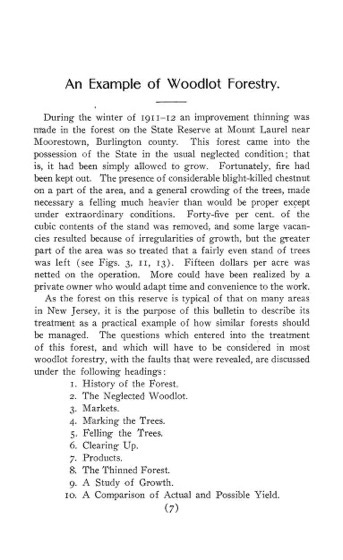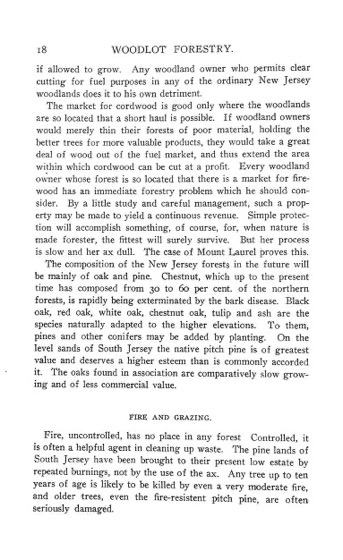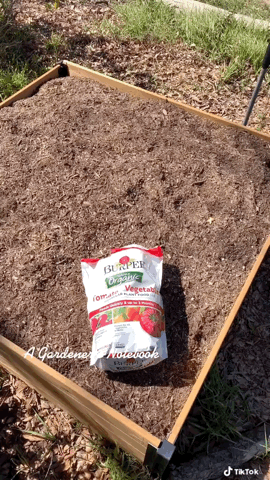Historical Garden Books – 132 in a series – An example of woodlot forestry (1912) by James O. Hazard
Download in Text, PDF, Single Page JPG, TORRENT from Archive.org
An Example of Woodlot Forestry.
During the winter of 1911-12 an improvement thinning was m’ade in the forest on the State Reserve at Mount Laurel near Moorestown, Burlington county. This forest came into the possession of the State in the usual neglected condition; that is, it had been simply allowed to grow. Fortunately, fire had been kept out. The presence of considerable blight-killed chestnut on a part of the area, and a general crowding of the trees, made necessary a felling much heavier than would be proper except under extraordinary conditions. Forty-five per cent, of the cubic contents of the stand was removed, and some large vacan- cies resulted because of irregularities of growth, but the greater part of the area was so treated that a fairly even stand of trees was left (see Figs. 3, 11, 13). Fifteen dollars per acre was netted on the operation. More could have been realized by a private owner who would adapt time and convenience to the work.
As the forest on this reserve is typical of that on many areas in New Jersey, it is the purpose of this bulletin to describe its treatment as a practical example of how similar forests should be managed. The questions whioh entered into the treatment of this forest, and which will have to be considered in most woodlot forestry, with the faults that were revealed, are discussed under the following headings
- Publication date 1912
- Topics Woodlots
- Publisher Trenton, MacCrellish & Quigley, State Printers
- Collection cornell; biodiversity; americana
- Digitizing sponsor MSN
- Contributor Cornell University Library
- Contributor usage rights See terms
- Language English
Find more books on Bookshop and Help Indie Book Stores!
* A portion of each sale from Amazon.com directly supports our blogs ** Many of these books may be available from your local library. Check it out!







